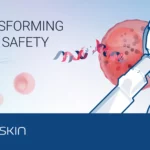REGULATIONS ON ANIMAL TESTING
Animal experiments have been widely used to conduct toxicity and safety tests in order to develop new pharmaceutical, chemical or cosmetic products. However, increasing awareness of the fate of laboratory animals has encouraged lawmakers to restrict their use in a laboratory setting and avoid animal experiments as much as possible:
Animal experiment ban on cosmetics
In 2003, the European government decided against the use of animal experiments to test products for cosmetic use and adopted the 7th Amendment to European Cosmetics Directive 76/768/EEC (currently 1223/2009) on February 27th 2003. This amendment introduces new provisions related to non-animal testing of cosmetic products and ingredients. The testing ban on cosmetics became effective on March 2013. In the European Union, it is forbidden to use animal experiments to test and validate cosmetic products and ingredients. Cosmetic manufacturers therefore need to resort to alternative testing methods when they develop new products. Genoskin’s innovative human skin models contain no animal components and offer an excellent alternative to animal experiments. We use real human skin that is donated after surgery to create our innovative human skin models.
Other countries, such as India, Israel, Norway, Brazil‘s largest state São Paulo, also have bans in place.
In the US, a Human Cosmetics Act. was proposed in 2014 to end animal testing. China has also recently announced plans to phase out mandatory animal testing for some cosmetic products.
Guidelines on the reduction of animal experiments – the 3 Rs
The Three R principle is an ethical guideline to reduce animal experiments. It aims to Replace animal experiments when possible, to Reduce the number of animals used in experiments and to Refine the methods used so as to minimize animal suffering and improve welfare for the animals used. Genoskin is an active member of IVTIP, the In Vitro Testing Industrial Platform, a Dutch-based association that reunites 46 companies with significant in vitro testing activities (assay developers, technology providers, chemical, pharmaceutical and cosmetic companies). IVTIP supports the 3Rs and even adds a 4th, i.e. Responsibility in research. Genoskin fully complies with the 3R principle by supplying innovative human skin models that use real human skin. Our NativeSkin® and HypoSkin® models consequently hold all the characteristics of in vivo human skin and are the closest alternative to in vivo clinical testing currently available on the market.
OECD guidelines for the testing of chemicals
In 2004, the Organization for Economic Co-operation and Development (OECD) adopted Test Guideline 428 and a corresponding Guidance Document, which are the reference for in vitro dermal absorption studies during toxicology research on cosmetic ingredients. The OECD guidelines present the use of static or dynamic diffusion cells and describe the main rules with regard to dosage and application time to harmonize test protocols. They also give an overview of pertinent skin models for experimentation.
REACH – Registration, Evaluation, Authorization & Restriction of Chemicals
Since June 1st, 2007, REACH has been setting the framework for the Registration, Evaluation, Authorization and Restriction of Chemicals in the European Union.
REACH aims to protect both human health and the environment from potentially harmful chemicals. The chemical industry is responsible for the correct risk assessment and management of chemicals. However, the European Union can take additional measures on highly dangerous substances when additional action is required at EU level. Under REACH, animal testing is to be avoided in favor of alternative methods and registrants can only carry out tests involving the use of animals as a last resort.
Genoskin acts against animal experiments
Even though other guidelines, such as European Directive 2010/63/EU on the protection of animals used for scientific purposes, still allow the use of animals for testing purposes, in vitro cell culture and in silico computer simulation already provide alternative methods to animal testing. However, Genoskin strives to avoid animal experiments by taking testing models one step further. We provide human skin models created from real human skin that is kept alive for 7 days to allow for repeated topical applications. Please contact us or visit our human skin models product page for more information.





